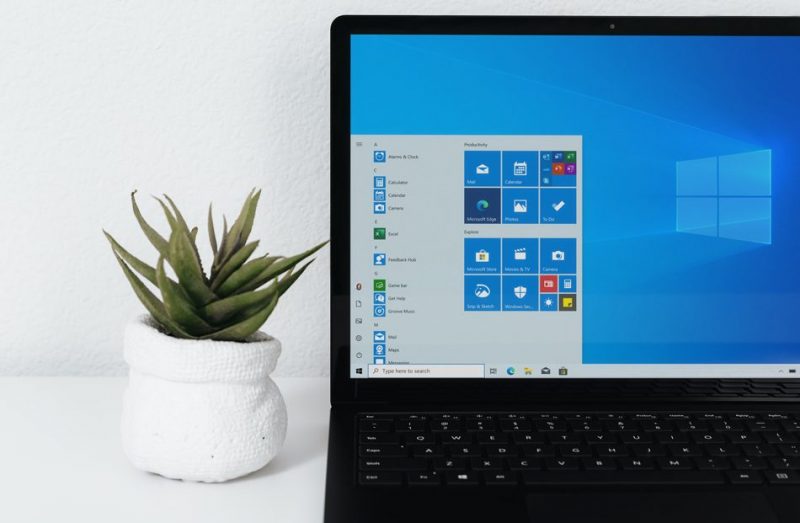Tech support scams are a menace to deal with, and yes, they are a reality today. It’s difficult for ordinary, unsuspecting people to spot a scammer. An average person with no industry knowledge (especially one who is severely tech-challenged) can get easily misled into sharing sensitive information with these scammers who pose as executives from technical support from Microsoft, ready to dole out verbal instructions remotely on the phone with the motive of ‘fixing’ software issues that do not exist.
These scammers are usually callers who pretend to be Microsoft employees, and have a solution for your ‘compromised’ device; they begin their conversation with their victims claiming that they got red alerts from your network which prompted them to make a follow-up call. They trap you in their sweet-tongued conversation, speak like a pro, and speak a little technical mumbo-jumbo to convince you that they are indeed calling from the technical support department and this is where they play their trump card.
The technically ignorant and the vulnerable get caught off-guard as they unmindfully continue to share sensitive information, giving them remote access to their electronic devices in the process. Within seconds, their identities get stolen, and most even get financially robbed as the scammers get easy access to their victim’s financial records which are usually stored on such devices as PCs. By the time you realize you were trapped, it’s too late.
Hackers and scammers are smart people who take people for a ride at a heavy cost. They use scary tactics to trick you into unnecessary and unsolicited technical support services. They aim to get you to pay them for an imaginary, non-existent problem with your device or software. The smarter ones are more malicious as they aim to bankrupt you by stealing your personal and financial information.
On a bad day, if you get drawn into an unwanted conversation with a scammer guy and unwittingly share personally identifiable information assuming him to be an authentic tech person, you will end up giving this guy remote access to your computer, and they will take the liberty to install malware, ransomware, and other unwanted programs that will compromise your system and damage all internal data.
Red Flags to Watch Out For

- Be warned when you get a call to “fix” technical issues out of the blue, without you having placed any request for a revert call at a tech company.
- When they ask you to install applications that will give them remote access to your system.
- They can even initiate contact by displaying fake error messages on the websites you visit, also displaying fake support numbers and alluring you to call.
- They can attempt to lock your browser and display pop-up messages. You need to note here that Microsoft error and warning messages will never contain phone numbers.
- Be alerted when these scammers demand a fee against the ‘services’ they provide. Any type of financial transaction done online at this time, no matter how nominal, can lead them to rip you entirely off your account once they have full access to your financial details.
- Remember, Microsoft will never send unsolicited messages or emails. Neither will the tech giant company make its employees make unnecessary calls to request personal or financial information. They will never call at their own initiative to offer technical assistance unless asked for.
- Microsoft will never ask for online money transfers, nor will it demand payment in the form of cryptocurrency and gift cards.
- Pay close attention to the language they use. Some scammers are less careful in using unprofessional, everyday language. They usually have fillers in between their speech, do not come across as proficient, repeat instructions, and go round and round about the same thing. Authentic people are trained in technical support and their level of knowledge and confidence are different.
- Shut your browser and ignore pop-up messages meant to scare your wits out.
If you have been a victim, here are 3 ways to report Microsoft tech support scam.

1) Report Scam to Microsoft by Filling Web-Based Form
Microsoft is a legit company, a tech giant that takes all its customers seriously. It will never risk its reputation by compromising the privacy of its customers’ data. But the unfortunate truth is, tech scams have become ubiquitous across the industry, affecting users worldwide. Scammers spare none when they call to claim that they are from a reputable company or a Microsoft partner.
If you have been scammed, please raise the incident immediately with Microsoft by clicking on and filling up the details on the form here. Be as detailed as you can about the interaction you had with your scammers as the information you provide to Microsoft on the site will help them to pursue the matter and take it up with the relevant law enforcement authorities, and assist them in the investigations.
Provide details like the company name the fraudsters used when they contacted you; the representative name; the country/city/region they were calling from, phone number, or anything else that you can share about the scammers; mention the date and time of the conversation you had with these fraudsters; how they initiated contact with you; if you paid anything for the ‘so-called’ services, if yes, mention the amount; mention the mode of payment; and give a brief description of the entire incident in the comment box.
2) Inform Local Law Enforcement Agencies
The government plays a critical role in keeping the public safe. They had the legal means to investigate before modern cloud technology came into the picture.
It is important to be fast to lodge a formal complaint with the local police or the district attorney. In the case of a financial transaction, the damage may not always be reversible, but the sooner you act the less you will repent as the scammers are on the loose, busy setting up plans to target more victims like you. Before they lay out their next trap, it is important to send out a warning alert from your end. Start the recovery process by reporting the fraud to the authorities, and preventing further loss in terms of social reputation and financial damage.
Collect all pertinent information and documents, and share as much in detail as you can with the investigative agencies. Leave out nothing from your report, and hide nothing from them. Federal agencies work closely together and will forward your complaint to the appropriate agency. A police report is required for fraud losses. Bring State authorities into the loop, if necessary, and they may choose to bring actions in state court.
3) Report to Federal Trade Commission in US
Report all types of tech scams to the FTC or the Federal Trade Commission. Access the web form to fill out and submit your complaint about the tech scam (in this case Microsoft). When you report a scam, the details you provide will be used by the FTC to build a case against the scammers. This is no hoax. The FTC works to bring justice to you, and more like you. They work to punish the perpetrators by booking them under the law. Hence, waste no time bringing them into the loop.

